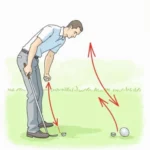Golf is a sport rich in history, strategy, and finesse. As you step onto the green, whether you’re a seasoned pro or a weekend warrior, one question looms large: What is the best score in golf? Understanding scores in golf is essential for players aiming to improve their game, track their progress, and embrace the competitive spirit of the sport.
In this article, we will explore not only what constitutes a "good score" in golf but also the various factors that influence your performance. We’ll dive into the different types of golf scores, strategies to shoot lower scores, and frequently asked questions about golf scoring.
Understanding Golf Scores
To tackle the question of the best score in golf, we need to understand how scoring works in this nuanced sport.
What is a Par?
At the core of golf scoring is the term “par”. Par represents the number of strokes an expert golfer is expected to take to complete a hole. For most courses, a par 72 signifies that a skilled player should ideally take 72 strokes to finish all 18 holes.
Scoring Terms:
Here are some key terms that you might come across when discussing golf scores:
- Birdie: One stroke under par.
- Eagle: Two strokes under par.
- Bogey: One stroke over par.
- Double bogey: Two strokes over par.
- Ace: A hole-in-one.
Average Golf Scores
While scores can vary widely based on a golfer’s skill level, here’s a general idea of average scores for various player categories:
| Player Category | Average Score |
|---|---|
| Professional | 70-75 |
| Low Handicap (Single-digit) | 75-80 |
| Mid-Handicap (11-20) | 80-90 |
| High-Handicap (21+) | 90-100+ |
What is the Best Score in Golf?
So what’s the magic number? The best score in golf is arguably a score of par or better (under par). For professional golfers, this often translates to scores in the 60s. In amateur leagues, players enjoy celebrating scores that break their personal bests, often aiming for their individual personal par.
When you think about competitive tournaments, scores of -10 under par or better are often the benchmarks that players seek to achieve for coveted titles.
Factors Influencing Your Score
Several elements can affect your score on the golf course. Let’s break them down:
1. Skill Level
Your proficiency in hitting accurate shots, putting, and strategizing plays a crucial role. Golf is a game of skill, and practice will inevitably foster improvement.
2. Course Difficulty
Courses come with different levels of difficulty. The Course Rating measures a course’s difficulty, with higher numbers indicating a harder course.
3. Conditions
Weather impacts golf scores significantly. Wind, rain, and even the time of day can influence conditions and shot precision.
4. Equipment
The right clubs, balls, and other gear can impact how you score. Custom-fitted clubs are vital for maximizing your performance.
Strategies for Lowering Your Score
Want to shoot for your best score in golf? Here are some strategies to lower that score significantly:
- Practice Regularly: Allocate time to practice putting and chipping. Small improvements in these areas can yield substantial results.
- Course Management: Make smart decisions. Don’t always aim for the pin; play to your strengths.
- Short Game Focus: Improve your short game. Over 50% of your strokes will be made from 100 yards and in!
- Mental Preparation: Visualize successful shots. Positive imagery can affect your game positively.
- Seek Expert Guidance: Consider hiring a golf instructor for personalized training.
Embracing Good Scores: A Personal Journey
Every golfer’s journey is unique! Players often have score goals based on personal records or improvement rates over time. It’s about progression tailored to your own abilities.
“When you focus on improving your score rather than competing with others, golf becomes a more fulfilling experience,” says golf coach John Fairway. Embrace your journey, and the scores will follow.
Key Takeaways
- Understand Scoring Basics: Familiarize yourself with terms like par, birdie, and eagle.
- Focus on Personal Bests: Your best score is your own personal achievement, be that beating par or striving for a better handicap.
- Practice: Regular practice is crucial for lowering scores.
- Consider Course Difficulty: Acknowledge that not all courses are created equal.
- Think Strategy: Smart plays and patience can lead to improved outcomes.
FAQs About Golf Scores
1. What is considered a good score in golf?
A score at or below par is generally considered good, while anything in the 70s or lower indicates strong performance, especially for amateurs.
2. How can I lower my golf score?
Focus on the short game, practice regularly, and understand the course layout to make informed decisions during play.
3. Why does course difficulty matter in scoring?
Courses have different ratings based on layout, hazards, and overall challenge, impacting average scores expected by players.
4. Is it better to have a lower or higher handicap?
A lower handicap signifies better play; this typically means a player scores fewer strokes than par on average.
5. What should I focus on to improve my golf game?
Key areas include putting, chipping, and overall strategy. Establish a balanced practice routine that improves your moving targets.
6. Can weather affect my golf score?
Absolutely! Wind, rain, and temperature influence club choice and shot precision, so plan your game accordingly.
7. How important is equipment in achieving my best golf score?
Using proper equipment tailored to your playing style can enhance your performance significantly.
8. How does the course rating affect my gameplay?
Knowing the course rating helps set realistic scoring goals based on the inherent difficulty of the course.
9. What is a "hole-in-one,” and how does it score?
A hole-in-one occurs when a player hits the ball from the tee into the hole in one stroke. It’s a rare and celebrated achievement in golf.
10. Should I track my scores?
Yes! Keeping track of your scores enables you to analyze progress, set targets, and stay motivated throughout your golfing journey.
With this comprehensive guide, you’re now equipped with the knowledge to strive for your best score in golf! Whether you’re looking to shave a few strokes off your game or just beginning your journey in this magnificent sport, the most important factor is to enjoy the game and the company of fellow players on and off the course. Don’t forget: The best score in golf isn’t just a number—it’s about the journey and the friends you make along the way!

